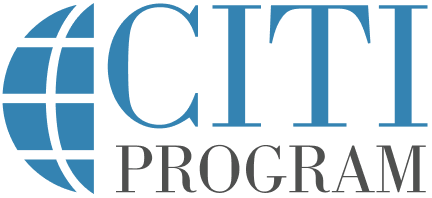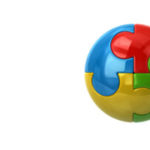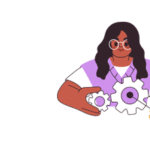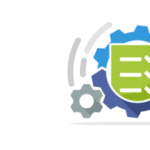Season 3 – Episode 10 – The American Academy: A Global Partnership Model
In this episode, we explore how international partnerships and global engagement enrich both universities and the communities they serve.
Podcast Chapters
Click to expand/collapse
To easily navigate through our podcast, simply click on the ☰ icon on the player. This will take you straight to the chapter timestamps, allowing you to jump to specific segments and enjoy the parts you’re most interested in.
- Podcast Introduction (00:00:06) Host, Ed Butch, introduces the podcast, its purpose, and provides a disclaimer about the views expressed.
- Introducing the Guest & Topic (00:00:32) Ed introduces Dr. Paulo Mussi Augusto and the focus on international partnerships.
- Dr. Paulo’s Background & Entry into Higher Ed (00:01:12) Dr. Paulo shares his journey from Brazil to academia and administrative roles in higher education.
- Brazilian Higher Education System Overview (00:02:13) Discussion of Brazil’s vocational-focused higher education and comparison to the U.S. system.
- Origins of the American Academy (00:03:34) How the idea for a liberal arts program in Brazil emerged through partnership with Kent State.
- Historical Context: Brazil’s International Isolation (00:03:53) Impact of Brazil’s military dictatorship on international relations and the need for global orientation.
- Differences in University Entry Models (00:05:10) Contrast between Brazilian and U.S. university entry and the pressure on young students.
- Benefits of Liberal Arts in Brazil (00:07:38) Advantages of introducing a liberal arts model to Brazilian students.
- Global Mindset & Community Impact (00:08:33) How international partnerships broaden perspectives for students, faculty, and communities.
- Challenges in Promoting Study Abroad (00:10:08) Difficulties in explaining and encouraging study abroad to students and parents.
- Experiential Learning & Self-Discovery (00:12:13) Travel and exposure to new cultures as a means of personal growth and self-understanding.
- Building Self-Esteem Through International Experience (00:12:50) How navigating foreign environments builds confidence and life skills.
- Motivation for Creating the American Academy (00:13:17) Strategic planning and the decision to launch a liberal arts program with Kent State.
- Establishing the Partnership (00:15:26) How institutional values and leadership alignment facilitated the collaboration.
- Sustaining and Benefiting from Partnerships (00:18:06) Importance of trust, mutual benefit, and ongoing effort in successful partnerships.
- Kent State Faculty Teaching in Brazil (00:21:09) Kent State faculty travel to Brazil to deliver immersive, intensive courses.
- Pedagogical Impact of Intensive Modules (00:23:24) Unexpected benefits of three-week immersive courses for student learning outcomes.
- Regulatory Challenges & Program Replication (00:27:12) Navigating regulations in Brazil and the U.S., and potential for replicating the model elsewhere.
- Institutional and Student Successes (00:28:27) Recognition, reputation gains, and student achievements resulting from the American Academy.
- Growth of Brazilian Student Population at Kent State (00:31:07) Increase in Brazilian students at Kent State due to the partnership.
- Global Reach of Program Alumni (00:31:35) Alumni pursuing further education and careers worldwide.
- Future of Global Education & Partnerships (00:32:30) The evolving centrality of internationalization in higher education.
- Advice for Students and Administrators (00:36:07) Encouragement to embrace risk, pursue international opportunities, and focus on the university’s broader mission.
- Podcast Closing & Credits (00:38:42) Host wraps up, invites listeners to learn more, and gives production credits.
Episode Transcript
Click to expand/collapse
Ed Butch: Welcome to On Campus with CITI Program, the podcast where we explore the complexities of the campus experience with higher education experts and researchers. I’m your host, Ed Butch, and I’m thrilled to have you with us today. Before we get started, I want to quickly note that this podcast is for educational purposes only and is not designed to provide legal advice or guidance. In addition, the views expressed in this podcast are solely those of our guests. Welcome to this month’s episode. Today I want to explore a topic that is professionally and personally significant to me, international partnerships. So today’s guest is Dr. Paulo Mussi Augusto, Associate Vice President for Global Education at Kent State University. Welcome to the Pod, Paulo.
Paulo Mussi Augusto: Thank you so much for the invitation to add.
Ed Butch: Of course. So excited to talk with you about some of this. Just returning quickly to the importance of this to me, Paul and I actually spent many years collaborating to establish the American Academy, which is a two year liberal arts program and a partnership between Kent State and the Pontifical Catholic University in Curitiba, Brazil. So today I really wanted to have that conversation about partnerships in general, but also get into a little bit about the American Academy of course, since that is really where the foundation for our professional relationship started. So I guess really to start us off, Paulo, can you just share a bit about your background and how you got involved in international higher education?
Paulo Mussi Augusto: Yeah, yeah. So going back, so I’m from Brazil actually, so I spent my whole life there. I just moved to United States. But I spent my whole life there and I graduated with a business degree and I pursue after that a masters and a PhD in business as well. And not my plan, but I end up teaching at a university after a PhD. It wasn’t my plan. But I was teaching at the Pontifical Catholic University of Parana, teaching business. And the university was facing at that time some difficulties, some challenges, and they invited me to become the planning director, strategic plan director for the university. And I enjoy the world of higher education in a way. So I kind of dig into that, combining my role as a professor and then try to understand better how higher education functions. And then from that point I went to other roles, the university, I ended up being the provost of the Pontifical Catholic University for eight years almost.
And one thing that struck me in Brazil higher education is the difference that Brazil have in comparison to the United States. So Brazil higher education is mostly vocational training. It’s completely directed to professional training for the job market. So usually the students only have professional training disciplines connected with the profession that they choose when they are in the high school. So because they even entered the university attached to that pathway. And I said, “No, we need to do something different.” And then when we start discussing this with you and the Kent State, you were involved in this, and we present the idea of developing the first, I would say, liberal arts program in Brazil. We did that through the partnership with Kent State. And it was amazing to launch that. So at that point, and you need to go back a little sometime, professors are something crazy because if you ask one person, he start talking and-…
Yeah, yeah. But you need to understand the history of Brazil. Brazil went through a long period of a military dictatorship. And what happens in that period was that Brazil was a very close country. It didn’t have a lot of international relations. Almost 30 years, more than 30 years actually. So everything in Brazil was just self-oriented. So we didn’t have a lot of international relations. And during that time that we are planning and trying to advance, I saw the need that we need to connect with a broader scenery, a broader landscape of what’s happening, what’s going on with other universities. Because in the end, what we do with you and the university and especially higher education is knowledge, and knowledge doesn’t respect borders or languages. Knowledge is a human trait. So that’s what pushes us to more international orientation at that time.
Ed Butch: Definitely, definitely. And I want to go back, because for me, when I was starting as we were really getting into the first steps of creating the American Academy, the fact that in high school in Brazil students are taking … What’s the national test again?
Paulo Mussi Augusto: Vestibular.
Ed Butch: Vestibular. They’re taking the vestibular. And if they want to become a doctor, they’re basically going into medical school from that first year out of high school. Which to us here in the States obviously is unheard of. So I completely kind of understood why this liberal arts concept could be something that would be fantastic for students, because just like eighteen-year-olds here in the States, there’s a lot of students that don’t know what they want to do at that time. So giving them that opportunity I think is fantastic. So it’s a very interesting difference that I don’t think we always think about here in the States.
Paulo Mussi Augusto: Yeah, because ultimately if you look into the higher education system around the world, you can put them in two different models, the French model and the Humboldtian Anglo-Saxon model, that is what’s happening here. But the French model, Napoleonic universities are where the undergrad determines the profession that you’re going to follow. So medical school is directly connected with the high school, not after the undergrad. So you go directly to the profession that you want. So that puts a lot of pressure in these students, because not only they need to decide which university they’re going to apply, but within that university, which program they’re going to apply. Because the competition is between each program. You don’t apply to your university and then get accepted for their degree. You get accepted for that particular program. And it happens that you don’t like that program, “Oh wait, I entered this program, I don’t like it,” then if you want to change, you need to go through the process of selection again.
Ed Butch: Right.
Paulo Mussi Augusto: And you lose almost every credit that you earn on those programs because they’re so specific that usually you cannot transfer that credit to other programs. So imagine if you’re a 16-year-old, 17-year-old and you need to decide your whole future based on that. Of course is a lot of pressure. And what happens, we have a 50, I would say a 50% range of student that actually are not happy with their choices because they are not mature enough to make that choice. They don’t have the information. Because sometimes we only have those traditional professions in our minds, lawyer … But then there’s a whole world of opportunities there and they only get a grasp of that when they enter, but that’s too late.
Ed Butch: Right.
Paulo Mussi Augusto: One of the benefits of this new model that the liberal arts actually offer for them. Not new, it’s actually old. But is new in the Brazil context.
Ed Butch: Right, right, exactly. Well, it’s interesting, because thinking about those two different systems, obviously that’s why, at least here in the states and when I was at Kent States, why we looked at a lot of these other countries and partnering with a lot of institutions in these other countries that have more of that so that we can help bring that liberal arts aspect. So obviously you were in Brazil other than the year or so that you were here in Kent helping us create it, but you were still in Brazil during that time for most of it. So I guess as it went through, and just in general, how do you really see local communities and students and faculty that really benefit from collaborations like this with a US institution potentially?
Paulo Mussi Augusto: I think that’s one of the biggest benefit of collaboration, is actually expanding the horizons of everyone. And in a world that needs this, I would say global mindset, you cannot measure the impact of that with the community and everything because your push to have the different worldviews, different perspectives, different ideologies, and you need to learn how to live with them and how to collaborate with someone that is different from you, who thinks different from you. And then you design and develop skills to do that. And that’s actually what global education needs and means. It means that you’re able to navigate in any context. How can I navigate in different contexts if I never exposed to different contexts before, if I only live in my own corner in the world and don’t connect with anyone that thinks different, that are different from me physically, mentally, culturally. And then you don’t develop that because this is an experiential learning. And that’s one of the biggest benefits of a global partnering and have international connections within the context of higher education.
Ed Butch: Yeah, it was always interesting when I was … Because I did recruiting at Kent State a lot for my role when I was there. And having conversations with students and parents about the possibility of studying abroad and in kind of the different terms. And some students and parents totally understood and got why we would have that as an opportunity, others not as much. And trying to explain that and be like, yeah, we want them to get out there, we want to experience. Even if it is a short-term, a trip for a week or two or three weeks, it’s still getting a student out there and getting those different experiences. Even if they never travel again then, but they still are going to have those experiences that they can really draw on them at that point.
Paulo Mussi Augusto: And it’s almost that at the same time, because we are offering something to them that they don’t have anything similar to compare to. So it’s hard. So when you offer something that … Because usually when you have a choice, you have some things that you know that you can compare and have a grasp, “Oh, I’m choosing this because that and that and that.” So I have some reasons to it to put it in a line and then I will choose this because of that and that and that. But when you offer something new that they don’t have anything similar to compare, it’s hard.
So it was in our case, and it still is, one of the jobs that we have, not only to recruit students, but actually to educate them about what they could gain through enrolling in this kind of program. Because sometimes they don’t understand, they don’t see the need for that because they are not exposed enough to international context to understand that they need, we need force, we need to educate them that they need something different. And then we need to provide them something different at the same time center. But one thing that you mentioned is super important, and I always say that, because there is … I forgot the name of the author. But the author, one of the sociology author said it, the best way to know yourself is traveling and being outside your comfort zone.
Ed Butch: Yeah.
Paulo Mussi Augusto: It’s interesting, because you think that traveling and being exposed to different contexts, you will gain access to different contents, but what you gain most is actually knowledge about yourself. Because when you’re exposed to something different, you start, “Oh yeah, why I’m thinking this way, why I’m behaving this way, why I have these values?” Because then you confront yourself with the different person, the different content, different values, different culture, and then you start reflecting about your own identity, your own ideas. And then you make some of them more solid, some of them you can change, and you can grow. And that’s I think one of the biggest opportunities that we are offering with global education for these fields.
Ed Butch: Yeah, yeah, exactly. And in really even just simple things I always would talk about in terms of just building self-esteem in a different country where you don’t know the language and learning to travel within that country, how do you determine what metro stop you get off or whatever it might be. Just those little things as you do all of those on a daily basis, it’s building some of that self-esteem as well.
Paulo Mussi Augusto: Yeah, for sure. Yeah.
Ed Butch: So I wanted to obviously go a little bit into the American Academy a little bit more and kind of that. We talked a little bit about what motivated that creation. But as you were the vice rector provost at that time, I guess what was really that overall kind of we need to do this with Kent State and make this program happen? I guess, what was that piece that really brought that piece together?
Paulo Mussi Augusto: Yeah, what happened is we were doing our strategic plan for the university and we said, “Yeah, we need to do something different. We need to provide a different academic journey for our students.” And after a lot of discussion with that, “No, we need a liberal arts program, we need something like that.” We don’t have anything like that in Brazil, and we need a full liberal arts program for our students. And not a full liberal arts degree, that was not the case, but at least a liberal arts foundation for our students, like entry to the university through this funnel of liberal arts. And then they can go through to professional programs.
And we decided this is what we are doing. And then we said, “Okay, but we don’t have any experience on doing this.” At the same time, liberal arts is connected with a long tradition of international thinking as well. Maybe here’s an opportunity not only for us to establish a new program in liberal arts, but to bring this international component at the same time. And then we looked into our partners and we said, “Oh, maybe we should do this in a partnership with some universities.” And Kent State and PUCPR, which is the anachronism for the university, Pontifical Catholic University in Parana, had a long partnership already, but a regular one. So where student exchange, some faculty-led programs. So we had that for some years before.
And I was visiting Kent State for, like partners usually visits to keep the partnership alive. And then we sit down and I present this idea to Marcello Fantoni, was vice president at the time, and to Todd Diacon, which was the provost at the time. Now he’s the president, but he was the provost. I think they immediately understood the value of that. Of course Marcello for international opportunity. And Todd, not only Todd understood that because Todd was reading the history about Brazil, so he understand about Brazil and the value of that proposition for the Brazilians.
Ed Butch: Right.
Paulo Mussi Augusto: So I think was a good [inaudible 00:16:04] in this way. So we decided, I would say to you right away that, okay, let’s pursue this. Of course, the immediate decision, it’s not an easy project. Of course it took a long time for us to sit down. And then you were key to this process. We developed curriculum. We met several times. I came here to spend eight months designing the curriculum, designing out every aspect of the program. But I think the connection was two institutions, even though they are completely different in terms of establishing, one is a private Catholic university in Brazil, another one is a public university in Ohio, United States. But they have similar values in terms of welcoming environment and pursuit of excellence and the idea of having more global footprint, and to infusing in students a different mindset. So I think having those same values, same prepositions, I think it helped a lot us to move forward and actually develop a [inaudible 00:17:15].
Ed Butch: Yeah, definitely. Yeah, it’s interesting to think about that. The provost, Todd, at the time, who’s the president now, just having a background in Brazilian history. And obviously Marcello, who’s a huge proponent of anything international education and everything. And just seemed to work. And as soon as I joined in as the project got started, I mean it was just like we had been working together for so long. It just worked. And that’s the type of partnership you want, where you can have conversations, tough conversations sometimes to be able to figure out what’s really happening and how the universities are going to benefit. And I think that’s another important point, is we had to really figure that out, is to how was this going to be a benefit for both PUCPR and Kent State as well? So can you talk a little bit about that?
Paulo Mussi Augusto: Yeah, for sure. I’ll talk about that. But I want to go back one step before going to talk about this. Because partnerships, of course our institutional partnership, but always go down to people. As you mentioned Todd. So if you have the right person, right people doing this, that’s going to happen. You need the right persons to make the partnership because partnerships are based on trust. If you trust the partner, the things goes smoothly. If you don’t have it, and it doesn’t matter how good university are, how good the product, is not going to happen. So you need the right people to do this.
But the benefit, I think that’s another thing, partnerships only remain … You can establish a partnership with only one side gaining something, but it is not going to last and it’s not going to achieve the goals that you want to. Partnerships needs to be a bilateral agreement that will benefit the both partners, in a way that both partners can see the value of keeping that partner partnership alive. Because partnership is always … I like to make an analogy, like is building a bridge. But if you build a bridge and nobody crossed that bridge, that bridge is useless. So partnerships is actually building a bridge to connect both institutions. But then you have people in both sides willing to cross that bridge to meet together and see the benefit across. You only cross the bridge because you see some benefits in going there. And back.
So you need to create what I’m gaining for that. And gaining of course in this case, it needs to be financially sustainable. Of course we need to have some money connected with that. But we need to expose our student with different things. We need to create a better global footprint, where we need to understand and grow our own capacity to promote our mission and our vision. So both institutions needs to gain this. And not only institutions, but also the students that are going through the program as well. And transparency are super important. So I don’t know, a partnership needs to be something that needs to be kept alive all the time.
Ed Butch: Yes. Yeah, yeah. It’s not a finish the project and done type of thing.
Paulo Mussi Augusto: No, no. If you finish the project and you sign an MOU, sign a contract, whatever, and then you don’t keep making effort to make this thing alive, it’s going to fade away.
Ed Butch: Exactly, exactly. And it’s interesting, I do want to mention quickly just because why I think it was such a unique program as well, is that you wanted to bring this concept obviously of liberal arts to the Brazilian students. And you mentioned that you didn’t necessarily have some of that expertise. So it was actually Kent State faculty that were traveling to Brazil for intensive three-week courses, one at a time, to teach their general courses. So college writing and intro to American politics and intro to human communications. So the faculty, that was a big portion for Kent State, actually sending our faculty to Brazil to teach those courses was a major part of it.
Paulo Mussi Augusto: Yeah. And actually this was intentional. So we didn’t want to just develop a curriculum, actually we develop curriculum, a Kent State curriculum, you are delivering a Kent State curriculum with Kent State faculty going there and delivering the course. We didn’t want a licensing something, a franchise. No, that’s not the case. We want to bring Kent State to Brazil, the true experience of Kent State. And the true experience needs to be not only the curriculum, but actually the faculty that are going there and deliver. And it’s interesting, because it’s almost like a technology transfer program, so for PUCPR. Because going there exposes our students, the students that are in the program, with the Kent State way of doing things. We clone the faculty, everything. At the same time, we expose Kent State faculty to a different environment.
Ed Butch: Yes, exactly.
Paulo Mussi Augusto: So when they are, the majority, I think I would say 99% of the faculty that went never went to Brazil before. And so they learn a lot about different contexts. And what we did also, we paired them, the faculty, we still do this, we paired them with our faculty from Brazil to work collaboratively, not in the classroom but in some projects. So we are giving them more opportunities to develop partnerships, research-related community service, whatever. So they will have a more global perspective as well. And since they are, when they go there to teach, they are out of their comfort zone as well. Not only the students are out of their comfort zone, the faculty, they are out of their comfort zone as well. So it’s an odd combination.
Ed Butch: It is.
Paulo Mussi Augusto: The students out of their comfort zone because of different subject, different language, different everything. But the faculty members, they’re in different country and a different way to deliver because it’s compressed in three weeks. So everybody is learning the process. And what do we learn? It’s interesting, because the model was three weeks, you remembered it very well. We did that not because we thought about, “Oh, this is going to be a pedagogical way to …” No, just to be honest, it was the logistics of delivering the course that drove us to these three week model, because otherwise we wouldn’t have the professors, the departments sending faculty for a full semester in Brazil. It was going to be too difficult to operationalize this. So we kind of shrink the semester in three week.
But then we learned that this immersive environment of three week is very pedagogical look. So the students, you see the learning outcomes of our students, Brazilian students compare the GPA, the average GPA of our Brazilian students learning not in their native language, compared to the GPA, the same course delivered here in Kent are higher. And I was wondering why this is happening. My guess is actually because of the way that we are compressing in immersive learning is a way better learning experience for the students compared to the spread. And they don’t have competing courses that they need to divide their attention and the effort. So I don’t believe that Brazilians are smarter. No, that’s not the case. It’s basically because we changed the way that we offer the course. And then we had, I would say collateral effect that we didn’t expect, but it the learning outcome was better also.
Ed Butch: Right. And I’m hoping that I can help you with this since I’m picking up my dissertation research again finally. And this is exactly what I’m going to study.
Paulo Mussi Augusto: Yeah, yeah.
Ed Butch: Hopefully we can get some answers in the next year or so.
Paulo Mussi Augusto: Perfect. Yeah. I’ll be glad to have that answer precisely.
Ed Butch: Perfect, perfect. And going back to what you said about the faculty being out of their comfort zone, I’ve had the great opportunity to go three times and teach the orientation course for the first week for the new student cohort. And it is, it’s completely out of your comfort zone. I’ve sitting through the welcome that you and the rector, the president of the university are doing all in Portuguese. So I have no idea what’s going on, what’s being said, and then I hear my name. So it is, it’s that interesting experience even for those of us professionally that are going, not just the student experience as well. So I think that’s great. But the great thing is you obviously, you had such a heavy hand in helping create this and everything. So then you became the director of the American Academy. And I guess what did you really see in those years before you then came to Kent State in terms of some of the outcomes and successes that had happened at that point?
Paulo Mussi Augusto: I’ll say that there’s … Of course I’m biased.
Ed Butch: We both are probably.
Paulo Mussi Augusto: But as you mentioned, so I stepped down from the provost’s office to be the person responsible to make this program happen. The first big challenge that we faced was actually making this official in terms of regulation, I would say. Because it’s a program that is dual enrolled. So we needed to first to assure that we are following all the Brazilian regulations about higher education. And Brazil’s crazy highly regulated. So it took us a long time to get approval from the minister of education to run the program.
At the same time here was the first time Kent was offering a degree, associate of science degree outside the United States. So we struggle to higher learning commission authorization. But a challenge actually opened the door for the future. So one of the benefits that you asked about it, now we can replicate this module in other parts of the world that also needs something like that. So one of the benefits that both institutions, I would say more for Kent State now, Kent State now has a way of doing international partnerships in a different way from that. And it actually leveraged our perspective. Kent State a couple of years ago won the national prize…
Ed Butch: Through NAFSA, yes. I can’t remember the name of it either.
Paulo Mussi Augusto: Simon something. But there is award about the best global strategy for universities, and Kent State won that award mainly because of the American Academy model. So that’s interesting. So it enhanced Kent State global strategy. And for PUCPR, their international profile as well. So what happened in Brazil, usually people that go to university, they’re more local around the region that the university is located. I would say 80% of the people that go to PUCPR … PUCPR is a university the comparable size of Kent State, 30,000 students. And I would say 90% of the students are in that region, the region that the university it is.
With American Academy, it changed the profile because it’s so unique program within the country that we see almost 57% of the students are not from that region. They’re all over parts of the Brazil. It benefits a lot of university. It gains a lot of credibility, reputation. And for higher education, nothing is more important than reputation. So the program actually adds a brand that we can advocate that we are doing some innovative ways of teaching. We are providing these students the best educational experience possible. And then we see what they’re achieving, the students are achieving, it’s amazing. And the testimonies that we have from them and how transformative the program is for their lives is something that fills our heart. So I’ll say that when you hear the students say that they never imagined themselves achieving what they’re achieving, that’s totally worth it, all the-
Ed Butch: It’s worth all the work.
Paulo Mussi Augusto: Yeah, yeah, yeah.
Ed Butch: Definitely. And then the great thing is I think we’ve had students that obviously once they finished the two-year associate degree that stayed at PUCPR and finished a degree there. We have others that came to Kent State in Ohio to pursue a degree there. And then when students graduate, go on into other master’s programs at other universities or even in other countries. So I feel like there’s been a lot of successes that have been there for sure.
Paulo Mussi Augusto: Yeah. And if you count, right now what happens for Kent State, Brazilian students are now the second largest population here internationally. And it wasn’t the case. So now we have India, of course India is big because of numbers. But the second largest international cohort of students are Brazilians because of the program.
Ed Butch: Yeah.
Paulo Mussi Augusto: So that’s interesting as well. One another benefit.
Ed Butch: Yeah, exactly. Exactly.
Paulo Mussi Augusto: And then you see the students and they’re spread through the world. So because they went here, we opened the doors, the world doors for them. So we have students in Europe, we have students in Asia, we have students everywhere that are still pursuing their careers, masters, PhDs, whatever, or professional careers. Some of them remain here in the United States. Some of them went back to Brazil. It’s amazing what they’re achieving.
Ed Butch: Yeah, for sure. For sure. So I guess as we start to wrap up our conversation, I’m going to zoom out a little bit from specifically the American Academy and just talk about some of this in general. And I guess now that you left your role as director to come to Kent State full-time as the associate vice president, I guess what really kind of excites you most about what you see for the future of global education and partnerships?
Paulo Mussi Augusto: I’ll say something, I’ll tell you that first. I think higher education, it’s actually changing a lot. But I would say in the verge of a major change. In the past, you would say that global international was a component of what universities they do. So we offer some study abroad programs. We have some international collaborations. To an era that internationalization needs to be the center of what a university does. And what does this mean? That everybody needs to travel? No, but we need to address the skill set of living in a more borderless world is important. Even though the student never travel, they need to understand that the world is bigger. They need to address the biggest challenge. Because the challenge that we are facing, the new generation will face are global challenges.
Ed Butch: Yes, exactly.
Paulo Mussi Augusto: They’re not local. And even the job market, just going to be very prosaic, you’re not going to be an engineer that always sees Northeast Ohio. That doesn’t happen anymore. That’s not the case anymore. If you only see your own corner of the world, you’re not going to be prepared for the 21st century. So universities that don’t embrace internationalization I think are actually not providing the best education for their students. So internationalization need to be the core center of everything. Because what I told you in the beginning, we deal with knowledge, and knowledge is borderless. Our main subject is not different kinds of knowledge, but knowledge is something beautiful because it’s go through everywhere. And then it transforms us when we grasp different kinds of knowledge. It transforms the students, transforms the university. But that’s tough because universities are, in a way, they were built to preserve the knowledge and to advance. But the preserved part sometimes prevent us to changing the way we do things. So universities are not the easiest organizations to be transformed.
Ed Butch: That is true.
Paulo Mussi Augusto: Yeah. But the world, societies, the communities needs that change. So we are going to be forced to change in this direction. And I think in the future some universities will struggle. That’s for sure. They already are. The demographic decline is going to impact- so it’s going to impact everyone. And if you’re not embrace this new world, we are going to be left behind.
Ed Butch: Definitely. Definitely. I guess to close out here, I really want to just say, obviously you have so much experience with global education and international partnerships. So if you could give, I guess just one quick piece of advice to students or to university administrators about international partnerships and opportunities, what would that be?
Paulo Mussi Augusto: Go for it. Don’t limit yourselves. I think one of the craziest things that I hear all the time is we don’t have the resource to do this, or I cannot do this personally, individually. So that’s too difficult. I don’t want to risk. We cannot be risk averse into this new world. We need to take the jump. We need to-
Ed Butch: Yeah, yeah. Not everything’s going to work out perfectly.
Paulo Mussi Augusto: No.
Ed Butch: We know that.
Paulo Mussi Augusto: Even if it doesn’t work out, is an educational journey. You’re going to learn. And sometimes tough thing is going to happen, but then you’re learning, you’re becoming better. If you travel abroad and you have a terrible experience … And sometimes it’s going to be a terrible experience because they’re going to be facing some challenge that you thought you are not able to deal with that, you’re going to be alone. But that’s fine because that’s going to help you face the next challenge.
Ed Butch: Exactly.
Paulo Mussi Augusto: And the universities as well. Universities sometimes when we are facing those changes, big changes in terms of restrictions, then we say, “Oh, is to protect ourselves.” No, that’s actually the wrong … We need to expand. We need to find ways to fulfill our mission. Because if you understand your mission, and then you need to put all the efforts you have in that mission. And the mission of one university is not only to provide job services, that’s part of that, but the mission of a university is to make the world better.
Ed Butch: Yes.
Paulo Mussi Augusto: That’s the mission of our university.
Ed Butch: For sure.
Paulo Mussi Augusto: And how can we do that? Several ways. Through our students, through our alumni, to the research we do, but actually being an active actor in the society, promoting the welfare, promoting the wellbeing of everyone.
Ed Butch: Well, I think that’s some fantastic advice. So everyone should take that for sure. But I just want to say thank you so much for the conversation today. I think that you and I could probably sit here and have a conversation about the American Academy for hours.
Paulo Mussi Augusto: Yeah.
Ed Butch: But thank you truly for all of the insights and everything today. I really do appreciate it.
Paulo Mussi Augusto: Thank you so much, Ed. Thank you for inviting me again.
Ed Butch: Of course.
I invite all of our listeners to visit citiprogram.org to learn more about our courses and webinars on research, ethics, compliance, and higher education. I look forward to bringing you more expert guests to discuss what’s happening on campus. Special thanks to our line producer, Evelyn Fornell. Production and distribution support provided by Raymond Longaray and Megan Stuart.
How to Listen and Subscribe to the Podcast
You can find On Campus with CITI Program available from several of the most popular podcast services. Subscribe on your favorite platform to receive updates when episodes are newly released. You can also subscribe to this podcast, by pasting “https://feeds.buzzsprout.com/1896915.rss” into your your podcast apps.
Recent Episodes
-
- Season 3 Episode 9: From Campus to Global Classroom: Health Essentials for Study Abroad
- Season 3 Episode 8: Professional Development Series – Episode 2: Leveraging Regulatory Experience for Compliance Careers
- Season 3 Episode 7: Centering Students Through Undergraduate Research (Part 2)
- Season 3 Episode 6: Centering Students Through Undergraduate Research (Part 1)
Meet the Guest
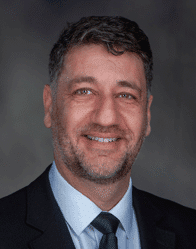
Paulo Mussi, PhD – Kent State University
Paulo Mussi Augusto holds a PhD in Business Administration and is the Associate Vice President for Global Education at Kent State University. Previously, he served as Provost and Executive Vice-President at Pontifícia Universidade Católica do Paraná (PUCPR). He also conceived and led the innovative American Academy joint undergraduate program.
Meet the Host
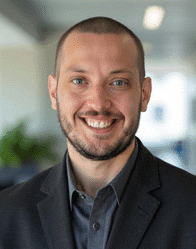
Ed Butch, Host, On Campus Podcast – CITI Program
Ed Butch is the host of the CITI Program’s higher education podcast and the Assistant Director of Content and Education at CITI Program. He focuses on developing content related to higher education policy, compliance, research, and student affairs.
